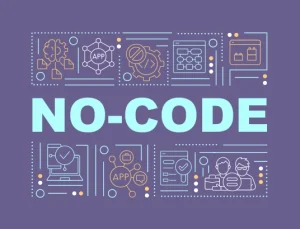- Posted on : July 16, 2024
-
- Industry : Corporate
- Type: Blog

Do you have what it takes to be a successful leader in your company? Knowing what your strengths are can make a difference in leading others and contributing to a growing enterprise.
Four years ago, I had an excellent opportunity to leverage my strengths during a challenging time. I had accepted a leadership position that involved opening a nearshore delivery center in Poland during the pandemic. In my new role at Infogain, I leveraged the knowledge from a self-assessment report. In this article, I want to share what I have learned about being aware of your strengths and how that impacts the leadership role and your team.
Attributes of a successful leader
Successful leaders share common characteristics that when it comes to making difficult decisions, keeping aligned with company goals, and leading their team to success.
In today’s rapidly changing world, a successful leader:
- Visualizes the future of their organization or team and communicates this vision to inspire and motivate others.
- Navigates through uncertainty and ambiguity. They are open to new ideas and flexible in their approach to problem-solving.
- Understands and manages their own emotions as well as the emotions of those around them. Emotional intelligence enables leaders to build strong relationships, resolve conflicts, and foster a positive work environment.
- Conveys their ideas clearly and listens actively to others. They communicate with transparency and authenticity, fostering trust and collaboration within their team.
- Empowers their team by providing them with the resources, support, and autonomy they need to succeed. They delegate effectively, trusting their team to take ownership of their work.
- Demonstrates resilience by bouncing back from failures, learning from mistakes, and maintaining a positive attitude in the face of adversity.
In addition, the leader of today fosters a culture of innovation and thinks strategically. They lead by example with ethical behavior, demonstrating honesty, fairness, and accountability in their actions. They show empathy towards their team members, customers, and stakeholders.
Peter Drucker had a good point when he said, “If you can't measure it, you can't manage it.” While a company may measure its success through key performance indicators and profits, how do we measure leadership skills?
Get to know your strengths through self-assessment
The first place to start, is an assessment of your leadership attributes. There is an abundance of online tools that can help you explore your skills, interests, values, personality, motivation and more, such as:
- Skills tests that measure abilities in specific areas, such as communication, problem-solving, creativity, or leadership (e.g., Clifton Strengths, SkillScan, O*NET Ability Profiler).
- Interest inventories that assess preferences and passions for ypes of activities, occupations, and environments (e.g. Holland Code, Strong Interest Inventory, Career Key).
- Values Assessments that evaluate core beliefs and principles that guide your decisions and actions (e.g., Work Values Inventory, Career Values Scale, Values in Action Inventory).
- Personality tests that measure the traits, characteristics, and behaviors that make you unique (e.g., The Myers-Briggs, DISC Personality Profile).
- Motivation assessments that identify sources of inspiration and satisfaction in your work (e.g., Career Motivators Assessment, Work Engagement Profile).
For my self-assessment, I chose the CliftonStrengths 34 by Gallup. According to Gallup, if we invest time, knowledge and skills in a talent, we start to use it consciously, and after some time it will develop into a strength. Gallup’s definition of strength is the ability to consistently perform close to perfection in a specific area.
The report ranks 34 themes in order of how frequently they show up in the assessment. Those themes are sorted into executing, influencing, relationship building and strategic thinking categories. The report helps you understand what your greatest strengths are and where your greatest potential lies.
Self-awareness in action
My strengths were ranked in the order of Relator, Strategic, Self-Assurance, Significance and Focus. Here’s a glimpse what the report said, and how I leveraged those strengths to manage operations of a new global delivery center in Poland.
Relator
A “Relator” enjoys close relationships with others and finds deep satisfaction in working hard with friends to achieve a goal. Relators naturally form genuine and mutually rewarding one-on-one relationships. Their authenticity allows them to build close, long-lasting connections that fosters trust and confidence.
Four years ago, faced with the challenge of rebadging a group of 30 employees to join a new company in Poland, I embarked on a journey of building personal connections and trust with each person, ultimately convincing 95% of them to join Infogain. Since then, I've maintained close relationships with these developers and leaders, fostering a culture of open communication and shared ownership of company operations.
Strategic
Those ranking high in “Strategic” create alternative ways to proceed. Faced with any given scenario, you can quickly spot the relevant patterns and issues. You quickly weigh alternative paths and determine the best one. Your natural ability to anticipate, play out different scenarios and planning makes you an agile decision-maker.
In my roles as department director and engineering manager, I've navigated through ambiguity, often without a predetermined path. My first objective was to ensure business continuity for a suite of products with a global customer base in the midst the challenges of a pandemic, remote work, and lockdowns. Despite these hurdles, we fulfilled all commitments to our customers.
Self-Assurance
Ranking high in self-assurance means you feel confident in your ability to take risks and manage your own life. You have an inner compass that gives you certainty in your decisions. You trust yourself completely. You trust your instincts, so you forge ahead confidently. Because of your certainty, persuasiveness and ability to make decisions easily, you lead the way for others.
As the leader of the new global center, I embraced the intrinsic need to shape my own work and lifestyle, making independent decisions and consistently evaluating my performance. This role demands maturity, self-awareness, and persistence, as well as the ability to set clear directions and articulate rationales to others.
Significance
Ranking high in “significance” means you want to make a big impact. You are independent and prioritize projects based on how much influence they will have on your organization or people around you. You want to do important work and are determined to make a difference. You want others to respect you for your significant contribution and willingness to work hard to achieve success.
Embracing the motto "Go big or go home" I strive to make a difference in every endeavor. After launching Infogain's operations in Poland, my vision to establish ourselves as industry leaders, known for hyper-specialized expertise. From the beginning, I steered the company through various challenges. Then, I assembled a team to carry forward this vision, focusing on scaling our operations and increasing interactions with stakeholders.
Focus
Those that rank high in “focus” means you can take a direction, follow through and make the corrections necessary to stay on track. You prioritize, then act. You have a powerful ability to prioritize, set goals and work efficiently. You avoid time-consuming distractions and stay on track toward an overall objective.
When operating at an executive level, being focused has allowed me to understand how certain project decisions may impact the company's growth trajectory and align with the company’s long-term goals. Also, I conduct benchmarks of myself against other managing directors to improve my leadership abilities.
In conclusion, I believe that if you want to be a successful leader, you must know how to fully leverage your strengths and talents. Having self-awareness as one of your top 5-10 talents will lead to more productive work and demonstrate your commitment to excellence in your organization.
Explore your leadership potential with self-assessment tools.
References






